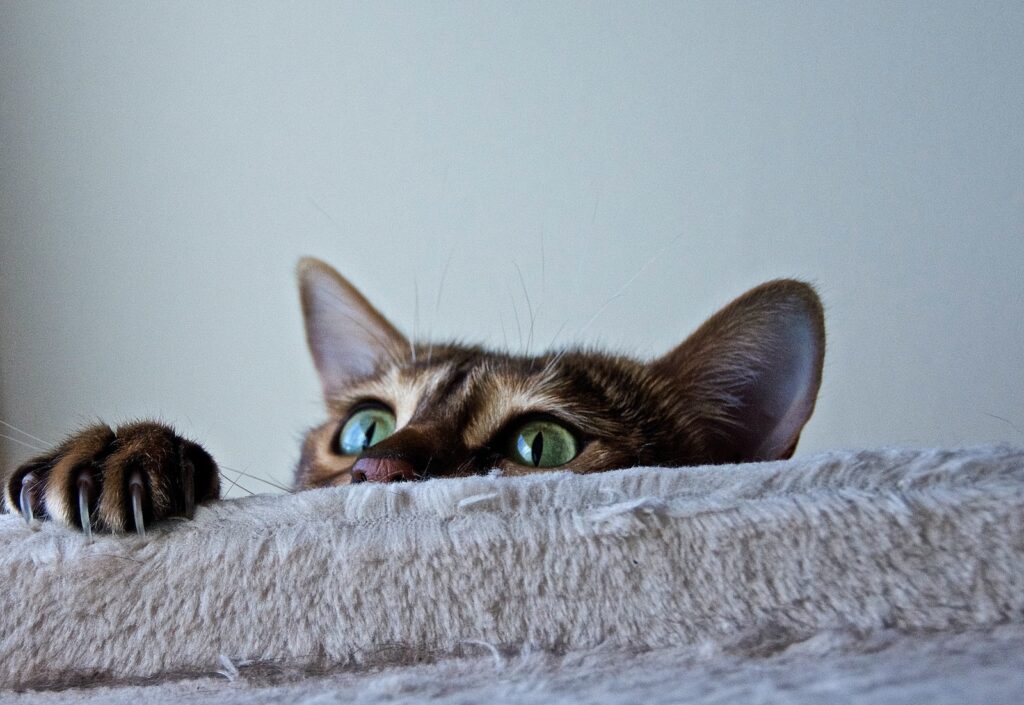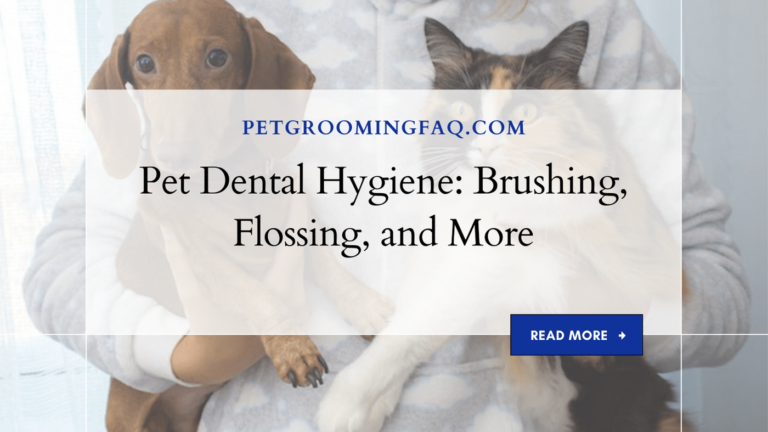Pet Dental Care for Cats: Unique Challenges and Solutions.
Meow, meow! Attention all cat lovers out there! Are you struggling to maintain your feline friend’s dental health? Despite their impeccable cleanliness habits, cats can also suffer from oral diseases that require proper attention and care. As a responsible pet owner, it’s essential to understand the unique challenges of maintaining good dental hygiene in cats and explore possible solutions.
In this blog post, we’ll delve into everything you need to know about pet dental care for cats – from preventive measures to treatment options and helpful tips on keeping those kitty teeth pearly white. So grab your furry companion and let’s get started!
Table of Contents
Dental care for cats is a unique and important subject

Dental care for cats is a unique and important subject. Some common dental problems that cats can experience include cavities, gum disease, and tooth loss. Cats generally have less complex dental systems than dogs do, and are less likely to require expensive dental surgery. However, regular dental care is still essential for their well-being.
Cats typically eat more dry food than wet food, which can lead to tooth decay in the front teeth. To avoid this problem, feed your cat moist food as much as possible – especially if they are younger or have soft teeth. You can also give them toothpaste or a chew toy to keep their teeth clean and healthy.
Be sure to check your cat’s mouth regularly for any signs of trouble – such as drooling or reluctance to eat or drink. If you notice any changes in your cat’s oral health, be sure to get them checked out by a veterinarian right away.
The dental needs of cats are different from those of dogs
One of the unique dental needs of cats is that they often have less teeth than dogs. This means that their dental care typically involves a smaller number of visits to the dentist.
Tooth brushing for cats is typically similar to tooth brushing for dogs – you must use a gentle brush with enough pressure to clean the teeth, but be sure not to abrade their gums. You can also add special toothpaste or oral sprays specifically designed for cats to your brushing routine.
Most cats will not require professional dental care, but some may develop oral health problems if their dental hygiene is not maintained. Individuals with severe periodontal disease – which affects the structure of teeth and bone around them – may need complete dental removal and restoration procedures. Untreated cases of gum disease can lead to tooth loss, as well as various other health problems.
Unique Challenges with Pet Dental Care for Cats
Cats naturally have a tight-grip on their teeth, which is why they don’t need to brush their teeth as often as dogs do. However, this doesn’t mean your cat can’t benefit from professional pet dental care.
Here are some unique challenges you’ll face when providing dental care for your feline friend:
1] Your cat’s natural chewing habits may interfere with dental treatments. If your cat starts chewing on dental instruments or treats, you may need to discontinue these activities until the treatment is complete.
2] Dental diseases in cats are typically more severe than in dogs and can often be fatal if not treated early on. Make sure to keep an eye out for any changes in your cat’s oral hygiene – if the discomfort or poor health increases, get them checked out by a vet.
3] Restoring healthy tooth roots takes time and patience – make sure to set realistic goals for yourself and your cat and stick to them! Moderate plaque control and regular visits to the dentist will help ensure that your pet enjoys good oral health for years to come.
Solutions to Common Problems with Pet Dental Care for Cats
When it comes to pet dental care, cats can be a bit more difficult to take care of than dogs. Some of the reasons for this may be that cats tend to brush their teeth only when they’re eating, and they often don’t chew on solid objects like bones or toys enough to wear down their teeth.
One common problem with cat dental care is Decay. Decay is a process where plaque and bacteria breakdown dentin, the hard substance that forms the tooth’s inner structure. This can lead to gum inflammation, tooth loss and even oral cancer. To prevent decay, your cat should have regular dental cleanings and a diet that includes plenty of chewing surfaces.
Here are some solutions to some common problems with pet dental care for cats:
1) Brushing Your Cat’s Teeth: One of the most important things you can do to help keep your cat’s teeth healthy is Brush Their Teeth! Not only does brushing help remove plaque and bacteria from your cat’s teeth, but it also encourages them to chew on healthy items such as fresh meat or bones. You can use a classic “cat brush” or an electronic toothbrush designed specifically for pets; just be sure to place it in warm water before using it so that the bristles are softened. For tips on how to brush your cat’s teeth correctly, check out our guide here…
2) Chewing Toys & Bones: another key part of keeping your cat’s teeth healthy is providing them with plenty of chewing toys and bones. Not only does chewing help wear down their teeth, but it also helps clean their teeth and rid their gums of plaque and bacteria. Be sure to rotate your cat’s chew toys regularly to ensure they get a variety of textures and flavors. For tips on how to provide your cat with the perfect dental care, check out our guide here…
3) Feeding Your Cat a Clean Diet: Another important part of pet dental care is feeding them a healthy diet. A diet that includes plenty of chewing surfaces can help keep your cat’s teeth healthy by providing them with the necessary amount of wear and tear. Additionally, make sure to feed your cat food that is low in sugar and high in fiber to help reduce the risk of decay. For more information on choosing the right food for your cat, check out our guide here…
4) Regular Dental Cleanings: One of the best things you can do to prevent decay is Clean Your Cat’s Teeth regularly! This means having regular dental cleanings in order to remove plaque and bacteria, which can lead to tooth decay. To make this process as easy as possible, consider using a dental brush designed specifically for cats, or using an electronic toothbrush with pulse mode. For more information on how to clean your cat’s teeth correctly, check out our guide here…
Things You Should Know About Pet Dental Care for Cats

Pet dental care is essential for cats, just as it is for dogs. Certain breeds of cats are more prone to dental problems than others and may need more frequent dental cleanings and examinations.
Fortunately, many common dental problems in cats can be avoided or treated easily if caught early on. However, if your cat experiences chronic pain or a serious infection, veterinary attention may be necessary.
Regular brushing and flossing is the key to keeping your cat’s teeth clean and healthy. If plaque accumulates beyond the reaches of your cat’s toothbrush, you can use a gentle dentalpaste made for animals that contains baking soda and fluoride. Be sure to rinse off this paste thoroughly after use.
If socialization is important to your cat, encourage her to participate in oral hygiene activities by providing her with a toothbrush and toothpaste of her own. You can also purchase special pet dental kits that include toothbrushes, flossers and other supplies designed specifically for felines.
Conclusion
Taking care of a pet’s teeth is crucial for their overall health and well-being. However, dental care for cats presents unique challenges that must be faced head on. In this article, we will discuss some of the most common issues that cat owners face when it comes to dentistry, as well as provide solutions that have worked for us.
We hope that by reading this article you will find the answers you are looking for and be able to take better care of your feline friend’s teeth in the future.






